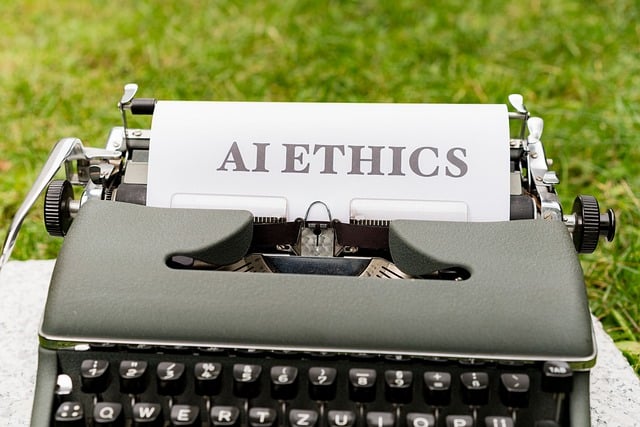The Ethical AI Governance Paradigm across Workplaces
The Ethical AI Governance Paradigm across Workplaces
Artificial Intelligence (AI) stands at the vanguard of technological milestones within the workplace, but its integration has raised substantial ethical quandaries. Amidst burgeoning AI capabilities, Ethical AI Governance has emerged not merely as a philosophical concept but as a pivotal framework for industries keen on harnessing machine intelligence responsibly. This trend alert explores a nascent yet significant development in Ethical AI Governance, its implications for various stakeholders, and strategic questions poised to inform future directives.
20 March 2024
BACK TO BLOGS

What's Changing?
The conversation around Ethical AI in the workplace isn't new, but there is an emerging focus on governance structures that are agile enough to adapt to the rapidly evolving AI landscape. The recent surge in AI-related regulation proposals signals a shift towards preventative and dynamic oversight mechanisms which is becoming crucial.
-
States like California have proposed landmark AI regulations, suggesting that the push for ethical oversight is gaining traction at legislative levels. This emboldens the formation of industry standards tailored to ensure AI's ethical deployment.
-
Chief economists project an accelerating pace of geoeconomic fragmentation which could fragment how AI governance is approached globally, increasing the complexity and importance of establishing universal ethical guidelines.
-
Cross-sector partnerships, such as that between SLAC National Accelerator Laboratory and NSF's NOIRLab, hint at cooperative governance models that could become templates for governing ethical AI practices in disparate industries.
Why is this Important?
The interplay between AI development and ethical considerations has profound implications for businesses and society. As AI systems become embedded in more decision-making processes, the potential for bias, malfunction, and misuse escalates, thereby raising the stakes for robust ethical governance frameworks.
-
Workplace AI can tremendously influence mundane to critical decisions. This power necessitates an ethical framework not only to protect against harmful outcomes but also to enhance trust and reliability among consumers and workers.
-
Emergent AI is discovering new phenomena and areas of potential exploitation (for instance, unseen asteroids). With each discovery comes ethical considerations of stewardship and responsibility, which transcend the borders of countries and industries.
-
Economic forecasts from entities like Standard Chartered, discussed in Vietnam News, signal changing market dynamics that ethical AI could influence—potentially shifting from a risk to a growth facilitator.
Implications
The adoption and regulation of AI are exerting pressure on the corporate world to incorporate ethical guidelines that are both universally applicable and sufficiently adaptable to cover future AI advancements. This ethic-centric reorientation is poised to reconfigure workplace dynamics and operational vectors across industries.
-
Operational Integrity: With a governance model in place, the AI's operational integrity will align with broader ethical standards. This is gradually becoming a non-negotiable in consumer trust and corporate reputations.
-
Regulatory Compliance: As statehouses nationwide propose AI-related bills, organizations will need to swiftly accommodate new compliance requirements or face legal and financial penalties.
-
Global Consistency: Economic chief's predictions of a fragmented geopolitical landscape necessitate consistent ethical AI governance to mitigate risks stemming from unequal AI practices.
Questions
-
How can organizations ensure that Ethical AI Governance frameworks are resilient enough to adapt to unforeseen technological advancements?
-
What operational shifts will be imperative for aligning internal AI development teams with external regulatory expectations and ethical norms?
-
How can diverse industries leverage cooperative models to promote a unified standard for Ethical AI that protects all stakeholders?
Summary
The trend of imbuing Ethical AI Governance into the workplace fabric is an inflection point for industries poised on the cutting edge of technology. It's an evolving narrative that promises to shape not just corporate conduct but also societal norms in the years to come. As this trend gains momentum, the businesses that proactively adapt to these governance structures will likely emerge as vanguards of an ethically-tuned AI revolution.
Bibliography
Primary sources of information for this trend alert include the ABC News report on California's proposed AI regulation, the insights into geoeconomic trends from Vietnam News, and the cooperative framework between SLAC National Accelerator Laboratory and NSF's NOIRLab as detailed by SLAC National Accelerator Laboratory news.
Image by Markus Winkler from Pixabay
